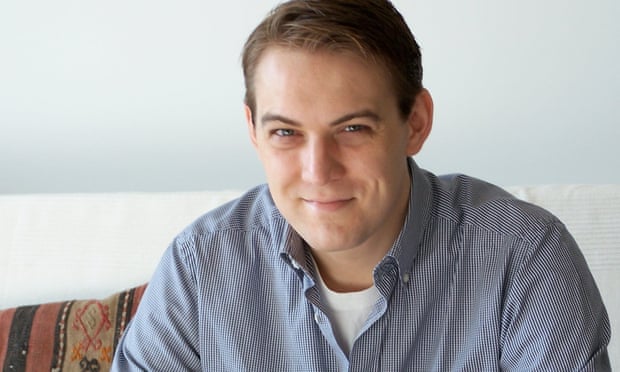Patrick Flannery has written a novel about what could happen to you when you think the government has no idea of you, or that you are even alive, much less cares. Hence, the title I Am No One. However, that is not always the case. You may think you have done nothing to call attention to yourself, but we live in an age where surveillance is carried out in a much more subtle manner, for reasons that would not have been reasons many years ago.
Jeremy O'Keefe has returned to America (New York) after ten years living and working in Britain, at Oxford. He has not been completely transparent, which leads to the reason he is being "watched." Before I forget, this brings my main statement about this book to mind, which is "If you really are doing nothing, you are probably not being watched." I picked this book up thinking that citizens who are truly living a quiet life were being observed by the government for no good reason and that would have been a great story if it had a plot that included sinister motives. That story would have been spine-tingling because it would alert us to the fact that the government is overboard with suspicion and innocent citizens are subject to an invasion of privacy that is, in it's scope, unparalleled in American history. However dystopian that story line is, that would be scary and we already kind of think that anyway, so that would be alarming, terrifying, gripping, as some reviews have stated about this book. I was disappointed about a third of the way through and it never came back for me.
Jeremy, our protagonist, returns to New York and a job at New York University. He begins to understand that he is being watched, in no uncertain terms. He has researched and written extensively on surveillance so he knows the subtle signs that may be clues that he is being observed. The story is about him trying to figure out why, which he does mostly figure out, and when I read that part, I thought how stupid he is for thinking that he was doing nothing to call attention to himself. He originally left New York (moved to England, lock, stock and barrel) right after the 9/11 terror attack which was the first "dumb" thing he did. He then gives way to loneliness and loss and involves himself romantically with someone he really should not be involved with. He is a little unpatriotic with this involvement. During this process of trying to understand why he is being surveilled, we watch him wallow in emotional mud from his divorce and "abandonment" of his adult daughter. He misses and replays memories of life as it was and that is part of his character, or lack thereof, that allows him to slowly drift into a relationship that should not draw him in. That is enough of a spoiler. I don't want to completely ruin your interest because you may be completely taken with this book, as it seems some readers are.
As far as the writing goes, the author is a professor of creative writing at the University of Reading, so the sentence structure, grammar, etc. should be excellent, and they are. I especially appreciated Mr. Flannery's ability to make the run-on sentence into a sort of panicking, rushed runaway thought train that perfectly describes Jeremy's fear. Don't get me wrong; the writing is good. The story line is disappointing. So much so that it compels me to give the novel 2 stars but, I give it 3-4 for the mechanics.
I was not pulled in, absorbed, or compelled but that does not mean you won't be. I recommend that you form your own opinion.
I was given a complimentary copy of this book by Blogging For Books in exchange for an honest review. These words are my opinion.
On that note, I give I AM NO ONE 3 stars.
Thanks so much for being here!
~Jeri
BOUT THE AUTHOR
Patrick Flanery was born in California and raised in Omaha, Nebraska. After earning a B.F.A. in Film from NYU’s Tisch School of the Arts, he worked in the film industry before moving to the U.K., where he completed a doctorate in Twentieth-Century English Literature at the University of Oxford. He is the author of the novels Absolution, which was shortlisted for the 2014 International IMPAC Dublin Literary Award, and Fallen Land. He has written for The Washington Post, The Guardian, and The Times Literary Supplement, and is a Professor of Creative Writing at the University of Reading



